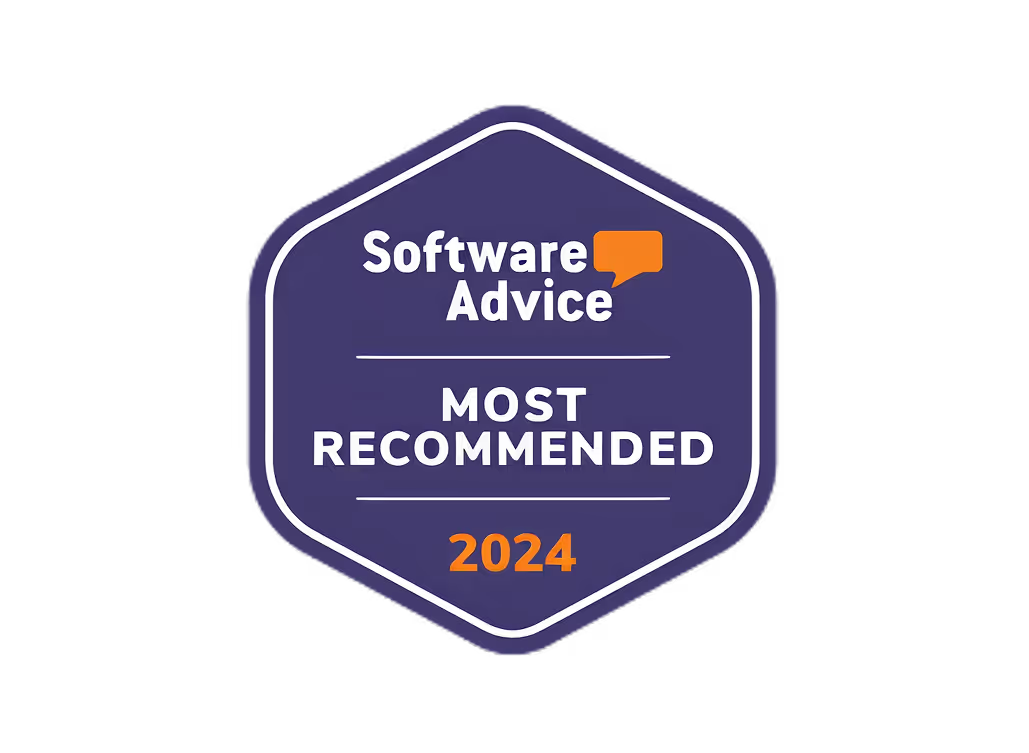SMB Marketing Essentials for Growth

Looking to grow your small or medium-sized business (SMB) without breaking the bank? SMB marketing is your answer. It's all about leveraging smart, budget-friendly strategies to get your products or services noticed. Here's a quick rundown of what you need to know:
- Understand Your Audience: Know who your customers are and what they want.
- Digital Presence: Have a solid website and engage on social media.
- Content Marketing: Share valuable content like blogs and videos.
- SEO and Local SEO: Improve your online visibility so customers can find you.
- Social Media Marketing: Use platforms like Facebook and Instagram to reach a wider audience.
- Email Marketing: Keep in touch with your customers through emails.
- Paid Advertising: Utilize pay-per-click ads to attract more visitors.
- Data and Analytics: Use insights to refine your marketing strategies.
- Advanced Tactics: Consider influencer collaborations, mobile optimization, and video marketing for further growth.
By focusing on these areas, you can attract more customers, increase sales, and compete with larger businesses, all within your budget.
The Importance of SMB Marketing
Marketing is super important for small and medium businesses because it helps them grow by reaching new customers. Good marketing can:
- Make it easier for people to find you online: Using SEO and PPC ads helps more people land on your website.
- Help sell more: Great ads and content can turn visitors into buyers, which means more money for your business.
- Show you're an expert: Sharing quality content regularly makes people see your business as a leader in your field.
- Let you compete with the big guys: Even if you're smaller, good marketing can help you stand out and compete with larger businesses.
- Pay off: When done right, the money you make from extra sales will be more than what you spent on marketing.
In today's world, being online is a must for businesses, and marketing is key to finding and keeping customers, growing your business, and standing up to bigger competitors.
Foundational Elements of SMB Marketing
Establishing Clear Goals
It's super important for small businesses to have clear goals. Think about what you really want to achieve, like getting more people to visit your website or finding 50 new customers. Keep track of how you're doing with specific targets.
Here's how to set your goals right:
- Choose clear aims, like boosting your website visits by 25% or getting 50 new leads.
- Make sure you can measure your success with clear numbers.
- Have both short-term and long-term goals so you can keep checking how you're doing.
- Be realistic, using your past results and expectations for growth to set your goals.
- Always be ready to change your goals based on what you're learning from your results and what's happening in the market.
Having clear goals helps you stay on track and shows you if your marketing is really working.
Knowing Your Audience
Understanding who you're talking to is key. This means:
- Making up profiles for your main types of customers.
- Looking into who your customers are, what they like, and how they buy things.
- Finding out where your customers like to hang out online and in real life.
- Asking your customers directly what they think and want.
- Figuring out your customers' journey, including their challenges and what drives them.
By really getting to know your audience, you can make messages that speak directly to them. This helps your content stand out and be valuable.
Building a Strong Digital Presence
Having a good website that works well on phones is super important. Your website should:
- Look good and work well on mobile devices.
- Have clear steps you want visitors to take.
- Offer valuable information that shows you know your stuff and helps you show up in search results.
- Make it easy for people to share your content and sign up for emails.
- Use tools to see how well your website is doing and where you can improve.
Besides your website, you should also use:
- Email marketing to keep in touch with customers automatically.
- Social media to reach more people without spending a lot.
- PPC (pay-per-click) ads to reach people who are already interested in what you offer.
- Content marketing to share your knowledge and become a go-to source.
A strong online presence makes it easier for people to find, connect with, and buy from your business. It helps small businesses compete on a bigger stage.
Core Strategies for SMB Marketing
Content Marketing
Content marketing means making stuff like blog posts, videos, and guides that people find useful. For small businesses, it's a great way to:
- Show you know your stuff
- Get more people to notice your brand
- Bring more visitors to your website
- Turn those visitors into customers
Here are some tips:
- Mix it up with different kinds of content like blogs, videos, and pictures.
- Use keywords so people can find your content when they search online.
- Share your content on email and social media.
- Look at how well your content is doing and make changes if needed.
Good content makes people see you as a go-to source for information and solutions.
SEO and Local SEO
- SEO makes your website more visible in search results.
- Local SEO helps people in your area find you.
For small businesses, SEO and local SEO are important for:
- Getting more people to your website
- Being seen more easily than local competitors
- Increasing sales from local customers
How to do local SEO:
- Make sure your website mentions your location.
- Set up a Google My Business account.
- Get links from local websites.
- Create content that answers local search questions.
- Use tools to see how your website is doing and find ways to improve.
Being easy to find in your area helps connect with customers right when they're looking for what you offer.
Social Media Marketing
Social media is huge, and it's perfect for small businesses to:
- Make more people aware of their brand
- Talk directly to potential customers
- Share what they're selling
- Get more people to visit their website
- Find and keep in touch with customers
To do well on social media, small businesses should:
- Pick the right platforms for their audience
- Make their profiles look good
- Share interesting content
- Use ads to reach more people
- Keep track of what's working
Being active on social media lets you connect directly with people who might want what you're offering.
Email Marketing
Email marketing lets small businesses talk directly to people by sending them emails. It works really well for:
- Keeping in touch with customers
- Sharing news and offers
- Getting people interested in what you're selling
Here's how to do it right:
- Let people sign up for emails on your website or social media.
- Send emails that matter to the person getting them.
- Share special deals and news.
- Use automation to send emails at the right time.
- Test different emails to see what people like best.
Email is a cheap way to reach a lot of people and can make them more likely to buy from you.
Paid Advertising
- SEM means paying for ads that show up in search results.
- You can also pay for ads on social media.
Paid ads can help small businesses:
- Show ads to people who are already interested
- Quickly try out different messages
- Control spending
- Show ads again to people who visited your website
Using ads smartly can help you find and sell to the right people.
Leveraging Data and Analytics
Using data helps small businesses make smart decisions. You should keep an eye on:
- How many people visit your website
- Which pages they like best
- How many people buy something
- How well your ads and content are doing
This information helps you:
- Figure out what's working
- Spend your money wisely
- Make your website better for visitors
- Keep your marketing on track
By understanding your data, you can keep improving and growing your business.
Advanced Growth Tactics
Influencer Collaborations
Working with influencers who have a strong following in your area can help more people learn about your business. Here's how to do it:
- Find influencers who talk about things related to your business and have followers who might like your products. Even people with a small number of followers can have a big impact.
- Give them free stuff to show in their posts. This makes them more likely to want to work with you and shows off what you're selling.
- Create content together like blog posts or videos. This helps you reach their followers. Don't forget to share these collaborations yourself.
- Pay them fairly depending on how many followers they have and what kind of content they're making. Sometimes, offering free products or discounts can work too.
- Check how well it's working by using special links or discount codes. This helps you see if the partnership is worth it.
Influencer marketing can make more people aware of your brand and see you as a leader if you choose the right partners.
Mobile Optimization
With more people using their phones to go online, it's important to make sure your website works well on mobile devices:
- Start with mobile in mind. Your website should be easy to use on a phone, with simple navigation and not too much scrolling.
- Make your website load quickly by using smaller images, cutting down on redirects, and keeping your website's code simple.
- Make buttons and forms easy to use on a phone. They should be big enough to tap easily.
- Let people use your site even when they're offline. Some tools can help with this.
- Test your site on different devices to find and fix any problems. Keep an eye on how people are using your site and make improvements.
Making your site mobile-friendly helps you reach people no matter where they are.
Video Marketing
Videos can help show what your business is all about in a fun and engaging way. Here are some tips:
- Keep videos short and to the point. Make sure they reflect your brand's personality.
- Pay attention to the quality of your video. Good lighting and clear sound matter more than having a lot of videos.
- Write down what's in your video and use the right keywords to help people find it.
- Look at how people are responding to your videos. Use the tools on social media platforms to see what works best.
Videos can give a behind-the-scenes look at your products, services, and what your business stands for.
Customer Engagement and Retention
Keeping customers happy and coming back is key. Here are some ways to do that:
- Give unexpected gifts or discounts to make your customers feel special.
- Offer early access to new products or special events.
- Send personalized deals based on what they've bought before. You can use AI to help figure out what they might like.
- Show off stories or pictures from your customers. This makes your business feel more personal.
- Create a loyalty program where customers can earn points and get rewards.
- Ask for feedback to learn how you can get better.
Small touches can make a big difference in keeping your customers happy and loyal.
sbb-itb-606b7a1
Scaling SMB Marketing Efforts
Marketing Automation

Marketing automation tools make it easier for small businesses to handle their marketing by doing routine tasks on their own and helping target the right people more precisely. Here's why they're helpful:
- Lead nurturing: Automatically send emails and social media messages to teach potential customers about your products and encourage them to buy. This helps turn more interested people into actual customers.
- Workflow optimization: Set up automatic actions based on what customers do, like sending them a follow-up email or specific ads. This saves you time and keeps things running smoothly.
- Analytics: Get smart insights about how well your marketing is doing. Learn what's working well and what needs to get better.
- Multi-channel integration: Bring together information from different places like email, social media, your website, and ads to see the full picture of how customers interact with your business. This helps coordinate your messages.
- Testing and personalization: Try out different email subjects, ad designs, or webpage layouts to see what works best. Change content based on what you know about a visitor or lead to make it more personal.
Starting with simple automated tasks can really help small businesses do marketing like the big companies, even without a big team or budget.
Outsourcing and Collaboration
Small businesses can boost their marketing by hiring outside help for specific tasks or working with marketing agencies:
- Outsource one-off tactical needs, like making a video about your product or running a short-term ad campaign on Facebook. This is a smart way to get expert help without spending a lot.
- Work with agencies for more complicated, ongoing things like improving your website's search ranking (SEO), online ads (PPC), or putting together a plan that uses many different marketing methods. Get advice that fits your business, what you want to achieve, and your budget.
- When hiring outside help, make sure they're good by looking at their past work and what other clients say about them. Be clear about what you want to achieve.
- Start small by trying them out with a single project or marketing area, see how it goes, then decide if you want to do more. This builds trust step by step.
- Keep an eye on things with regular updates. Make sure the work they're doing fits with your overall marketing plan as things change.
Finding the right people to help can make a big difference for small businesses in marketing. The key is to choose partners carefully.
Conclusion
: Cementing Your Marketing Foundation
Wrapping it up, if you're a small business looking to grow, having a solid marketing plan is key. Here's what you should focus on:
- Really understand who you're selling to. Keep asking your customers questions, look at what they do and like, and use this info to make messages just for them.
- Make sure people can find you online. Work on making your website look good and fast. Put your business on online maps and directories like Google My Business. Write stuff that shows up when people search for things you do.
- Be active on social media. Figure out which social media sites are best for your business and post regularly. Think about paying for some ads to reach more people and look at how well your posts are doing. Working with people who have a lot of followers can also help spread the word.
- Use tools to make things easier. There are programs that can send emails, post on social media, and track who's interested in what you're selling without you having to do everything by hand.
- Keep checking and changing your plan. Have clear goals, like getting more website visitors or selling more stuff, and use tools to see how you're doing. Try different things and see what works best.
By focusing on these areas, small businesses can get their name out there, attract more customers, and sell more, all without spending a fortune. Keep an eye on what's working, be ready to change things up, and you'll see your business grow.
Related Questions
What are the 4 essentials of marketing?
The four Ps of marketing are like the main ingredients in a recipe for selling something:
- Product: What you're selling, what makes it special, and why people would want it.
- Price: How much it costs, including any deals or payment plans.
- Place: Where people can buy it, like in a store or online.
- Promotion: How you tell people about it, using ads, social media, emails, and more.
These four Ps help you figure out the best way to get your product or service to your customers.
What is SMB in marketing?
SMB stands for "small and medium-sized business". In marketing, it's all about how to get the word out to these smaller businesses. They have different needs and less money to spend than big companies, so the strategies need to be smart but budget-friendly.
What are the best marketing strategies for business growth?
Some good ways to help your business grow include:
- Making your website easy to find and use
- Putting your business on Google My Business
- Keeping in touch with potential customers through emails
- Making sure your website is easy to navigate and encourages people to buy
- Using secure methods to make sure customer information is safe
These strategies help more people find you, trust you, and buy from you.
What is SBM marketing?
SBM marketing means "small business marketing". It's about finding the best ways to promote products and services to small businesses. Since small businesses don't have as much money or resources as big companies, the marketing needs to be tailored to fit their specific situation. The goal is to help small businesses grow by reaching out to them in the right way.


















